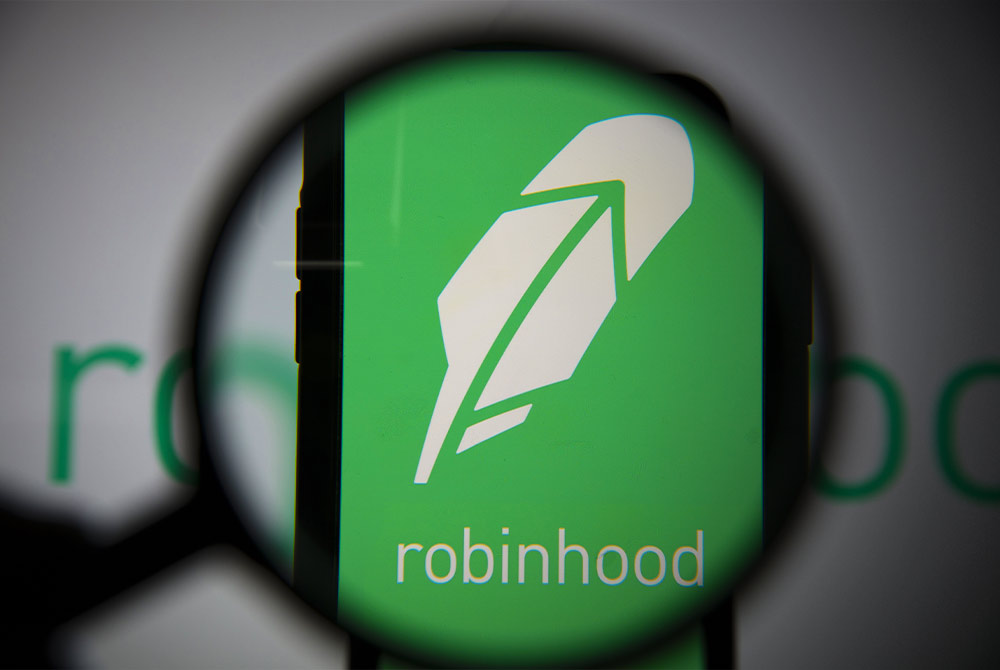
Most Read

RobinHood Customers Are About to Be Phished—Here's What it Will Look Like (Examples)
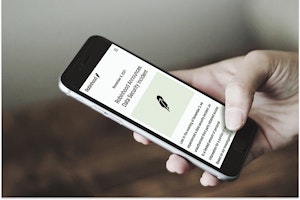
Robinhood Users: Look Out for Scams Following Data Breach
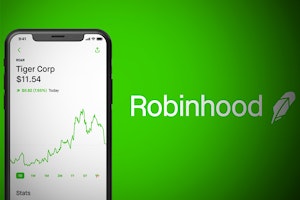
Is Robinhood a Scam?
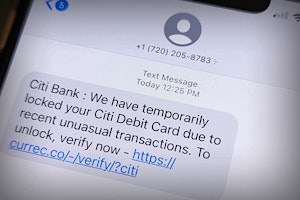
Citibank Text Message Scam: Locked Debit Card Alert Is Fake
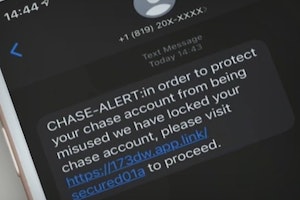
Real Chase Fraud Text Alert or Scam Message?
Robinhood In Depth
- Types of Scams Targeting Robinhood Users
- How to Beat Robinhood Scams
- Protection Against Robinhood Scams
- How to Stay Safe While Using Robinhood
Robinhood, founded in Palo Alto, California, in 2014, began as a brainchild of two Stanford students and now offers commission-free trading services to everyday people. On the platform, you can trade stocks, options, ETFs, and cryptocurrencies. At this time, Robinhood doesn’t offer mutual funds, bonds, or retirement accounts, but it’s easy to get started, and customers can enjoy a $0 starting balance.
Customers can trade using the Robinhood website or the app. Even though Robinhood has been criticized by financial regulators and even fined, the platform itself is not a scam. Robinhood is a legitimate trading platform that provides open access to the markets. However, because of its popularity, scammers have found ways to defraud customers. Here are some of the scams they use to attack unsuspecting traders.
Types of Scams Targeting Robinhood Users
The most common kind of scam used to target Robinhood users is phishing. Phishing hackers try to get your login credentials by pretending to be someone else or represent a trustworthy company, such as Robinhood.
Robinhood Email Phishing Scams
Scammers may try sending you an email that appears to come from Robinhood. In many cases, they may attempt to make the sender’s address look similar to Robinhood.com. For example, a scammer may send you an email with one of the following domains:
- @Robinh00d.com
- @Robbinhood.com
- @Robnhood.com
While these are close, they differ from the actual domain, which is “Robinhood.com.”
Within the email, you may see a link to a website that looks legitimate but it’s designed to steal your login credentials. If you enter your username and password, they are sent to a hacker who can use them to access your account or sell them to another hacker.
The hacker may ask for your personal information or login credentials for Robinhood or other trading services or platforms. This is then used to steal your money, or it may be sold off to another hacker. They may also ask you to download software that ends up containing malware.
Emails with Fake Attachments
The email may also contain attachments that seem innocent, such as those claiming to be 1099 tax documents or other crucial files. But if you were to click on the attachment, your computer could be infected with malware.
Emails Promising Prizes or Gifts
You may also get an email that promises a prize or a gift, such as free stock. These are often too good to be true and designed to trick you into clicking on them to investigate the “opportunity.” When you click, you’re either brought to a site set up by a hacker to steal any information you enter, or malware gets downloaded onto your device.
Robinhood Text Scams
Scammers may also send you text messages that sound like they could be from Robinhood. These messages may request your account name and password so a hacker can use these to log in to your Robinhood account. The hacker may also hope that you use the same username and password combination on other financial accounts and use them to log in and steal your money.
Text Messages Asking You to Send Money
Hackers may send you a message asking you to send money to your Robinhood account—or the company itself—using an app, such as WhatsApp or Cash App. Your funds then go to a scammer, not Robinhood.
Text Messages Asking for a Two-Factor Authentication Code or Your Account Password
Scammers also send text messages requesting two-factor authentication (2FA) codes or passwords for accounts. If you provide the 2FA code, it goes to a hacker who can use it to access your Robinhood account.
When a hacker asks for your password, it may be because they already have your username and just need the password to take their hack to the next step. If you have 2FA enabled, they may follow up with a request or your 2FA code as well.
How to Beat Robinhood Scams
To beat Robinhood scams, you should:
- Never open links within text messages claiming to be from Robinhood
- Never provide anyone with your username or password
- Never give someone a 2FA code
- Never download software sent by someone claiming to be from Robinhood
- Never provide credentials for other trading accounts or services
- Never send money to someone claiming to be from Robinhood using an app like CashApp or WhatsApp
It’s also essential to download the real Robinhood app from the Apple App or Google Play store. When you need to download tax forms or other items, only do so from within Robinhood.com. You should also only try to get phone support by logging in to Robinhood and asking for a callback.
It's important to verify links and contact details to beat imposters.
Protection Against Robinhood Scams
Robinhood customers are protected by the Securities Investor Protection Corporation (SIPC). If a scammer has stolen money from you, the SIPC may be able to help.
Secured Data
Robinhood also encrypts your account password and other sensitive information, such as your Social Security number. This means even if a hacker were to gain access to Robinhood’s database of information, they wouldn’t be able to read your sensitive info.
In addition, when you use Robinhood’s app, all communications are transmitted using Transport Layer Security (TLS), which encrypts the information, making it impossible for anyone without a decryption key to read. Robinhood employees also never access your banking information after you have entered it.
Report Robinhood Scams
Robinhood has a team in charge of fighting scams. If you think someone may be trying to scam you via email, text message, or any other means, you should report it to [email protected]. You should include any and all information, such as the email header, screenshots of text messages, or addresses and names of websites or social media accounts.
How to Stay Safe While Using Robinhood
To stay safe, you should periodically review the devices that have accessed your account. You can do this by navigating to Account > Settings > Your Devices. If you no longer use a device, you should remove it.
If you notice strange activity, you should change your password right away and always use no less than ten characters with uppercase and lowercase letters, symbols, and numbers. Your password should also be unique to Robinhood.
To keep your account secure, you should enable 2FA by using either an authentication app or text messages.
If any account activity or messages your receive seem suspicious, you should reach out to Robinhood right away. They may be able to help you secure your account and stop a hacker from taking advantage of you.
Scams Impacting Robinhood
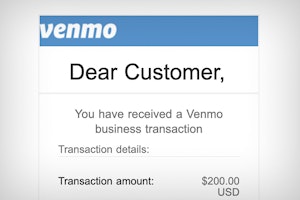
Selling on Facebook Marketplace? Beware of Fake Venmo Emails
Scammers are sending fake Venmo emails to Facebook Marketplace sellers in an attempt to steal login information and money.

Citibank Text Message Scam: Locked Debit Card Alert Is Fake
If you've received a locked debit card text message from Citibank, it's likely a scam. Don't click on the link and delete the text message.

Real Chase Fraud Text Alert or Scam Message?
If you receive a text message from Chase Bank, don't click on any links or call the phone number listed—it could be a scam designed to steal your information and money.
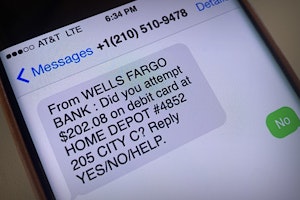
Wells Fargo Text Alert - Is It A Scam?
Dangerous text message scams are targeting Wells Fargo customers. These text message alerts for Zelle transactions or purchases with retailers are scams.

Capital One Fraud Text Alert Scams: Spotting a Fraud
If you received a suspicious Capital One fraud text alert, it may be a scam. Learn how to spot the fake to protect your identity and funds.
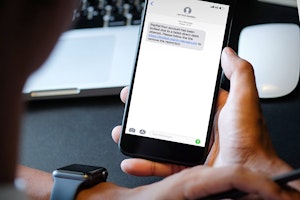
PayPal Text Scam: Identify a Fake & Protect Your Money
Several versions of fake PayPal text messages are being sent to people worldwide. There are a few easy ways to tell which messages are scams and simple things you can do to protect yourself.
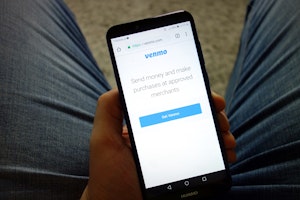
Venmo Text Scam: Don't Fall For These Fake Messages
If you received a text from Venmo with a link to verify a payment or deposit, or are asked to complete a survey in exchange for money, it may be a scam.

Free PayPal Money Scams: Don't Believe the Hype, It's a Scam
Multiple free money scams that easily fall under the “too good to be true” scams that target loyal PayPal users with promises of free PayPal money.

How to Avoid PayPal Shipping Label Scams: Top Tips
PayPal is a convenient way to pay for online purchases and has a reputation for safety and security. But scammers still find a way to use PayPal to help them steal products.

PayPal Shipping Scams: Tips to Protect Your Money and Items
Scammers take advantage of PayPal's buyer protection program to scam sellers out of their money and items for sale.
Guides To Protect Against Banking & Finance Scams

Beat Cash App Scams and Stay Safe When Transferring Money
Cash App may be a convenient way to send and receive money from friends and family, but it's also a common target for scammers who are out for your money.
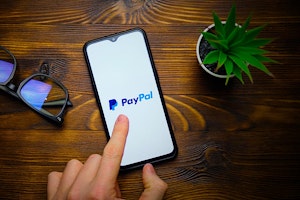
How to Beat PayPal Scams and Keep Your Money Safe and Secure
Whether you use PayPal for personal use or business transactions, scammers are out to get you. It's what you know and how you act that will keep your money safe.

How Alliant Credit Union Protects You From Scams
Alliant Credit Union has several security protocols in place to help protect you from fraud and scams, including ways to recover lost funds or limit your losses.
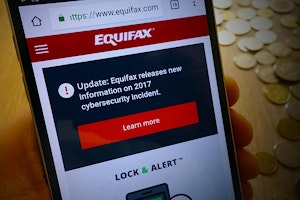
5 Things to Do After a Data Breach to Protect Yourself
When a company is the victim of a data breach, it's completely out of your control. However, there are steps you can take afterward to protect your information and money.
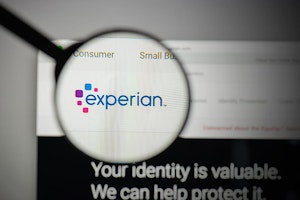
How to Place an Experian Fraud Alert: Online, Call, or By Mail
Placing a fraud alert on your credit report is important when trying to recover from identity theft.
News About Banking & Finance Scams

RobinHood Customers Are About to Be Phished—Here's What it Will Look Like (Examples)
Robinhood's latest data breach of 5 million email addresses means that Robinhood users are about to encounter a wave of phishing attempts.

Robinhood Users: Look Out for Scams Following Data Breach
Robinhood recently suffered a massive data breach, exposing the information of millions of users.

Banks May Refund More Zelle Scam Victims in 2023
Zelle scams have reached a serious volume. New reports suggest that banks are looking at new refund protections for customers in 2023.

Urgent CDC Warning: Eye Drops Linked to 3 Deaths, Loss of Vision
The CDC is warning eye drops users of a rare bacterial infection from 2 brands of eye drops. The infection is resistant to antibiotics and has resulted in the loss of vision, loss of eyeballs and the death of 3 patients.

Optus Data Breach - One of the Worst Cyberattacks in Australia
Hackers have gained access to 9.8 million customer records from Optus in Australia, exposing personal information such as driver licence, medicare and passport details.